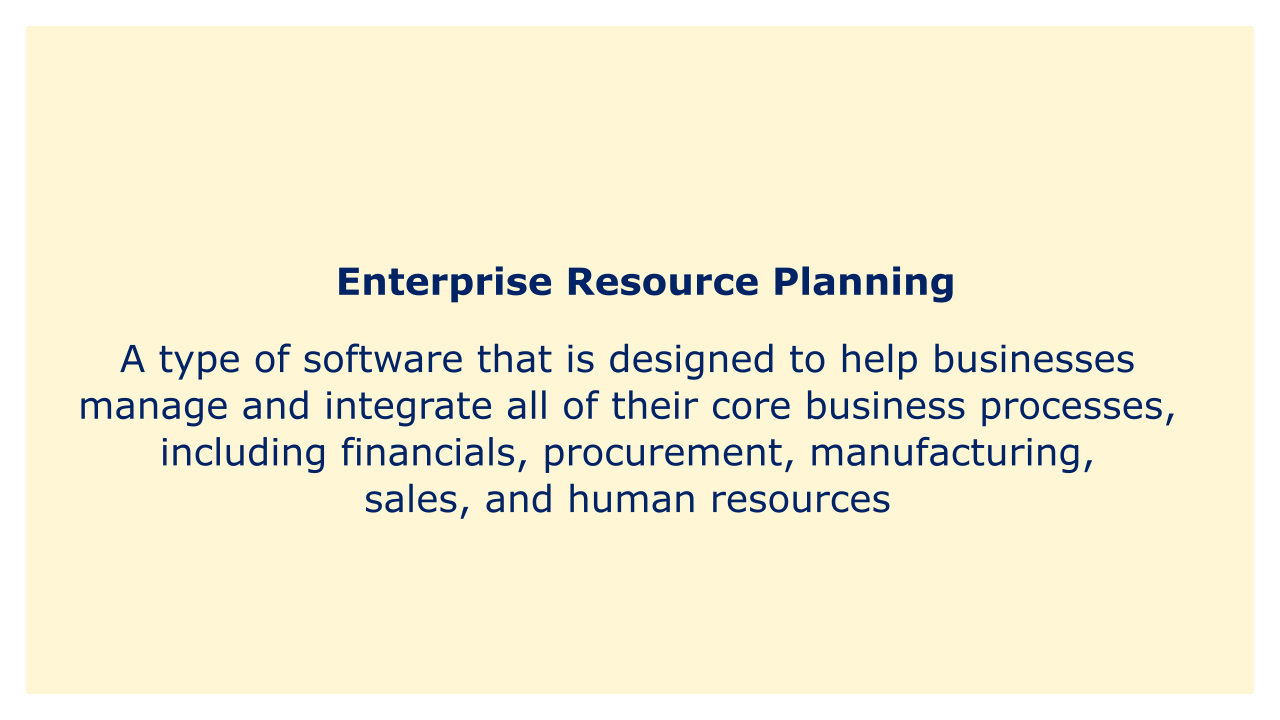 |
| Image: Moneybestpal.com |
A form of software called enterprise resource planning (ERP) is intended to assist firms in managing and integrating all of their essential company operations, such as finance, purchasing, production, sales, and human resources. ERP systems are made to give businesses a centralized, real-time view of all business activities, enabling them to make better decisions and streamline their processes.
Integrated apps that can be tailored to a business's unique needs are generally included in ERP systems. These programs might have modules for inventory management, supply chain management, customer relationship management, financial and accounting management, and human resource management, among others.
Enhanced decision-making ability, more visibility into business processes, and higher efficiency are some of the main advantages of an ERP system. An ERP system can help firms find inefficient areas and streamline their procedures by giving a centralized view of all corporate processes. Additionally, by delivering real-time data on crucial business parameters like inventory levels, sales success, and financial performance, ERP systems may assist firms in making better decisions.
The process of putting an ERP system into place may be difficult and time-consuming, involving a sizable investment in both software and training. The advantages of an ERP system, however, can often outweigh the costs for many firms. An ERP system can allow firms to compete more successfully by giving a consolidated, integrated view of all company processes.
